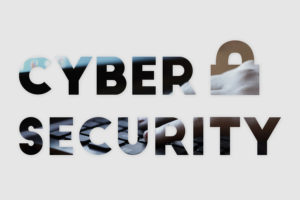This guest article from Southern Cross University explores the important role of IT management professionals in ensuring cybersecurity in an era when cybercrime is becoming more and more prevalent.

As we spend more time and share more information online than ever before, cybercrime is also on the rise.
As we spend more time and share more information online than ever before, cybercrime is also on the rise. It’s a danger that spares no victims as it becomes more sophisticated and pervasive. Whether it’s personal data or company data you’re seeking to protect, there are some simple ways to stay vigilant online. While for more advanced safety concerns, reaching out to IT Security experts for support is increasingly valuable.
The rise of the cybercriminal
In 2017, a global ransomware attack hit Australia and demanded that we pay attention to our cyber security. The WannaCry attack was able to encrypt files with confidential information and hold the attacked organisations “to ransom” to retrieve their valuable customer and user data. The attack was so widespread and threatening that it led to significant action from the federal government, bolstering the cyber security portfolio and investing in an inaugural Cyber Security Strategy.
Now it’s time for individuals and businesses to heed the warnings and implement practical changes to defend against cyber-attacks.
Protecting yourself online
To make sure you’re safe online, there are some small steps to take that can protect you from the bulk of cybercrime activities:
- Think of your computer data as your money. You wouldn’t leave your cash lying around, so don’t leave passwords or sensitive data unprotected or unencrypted.
- Change your passwords frequently and make sure they’re strong. There are specialised password protection programs available to help with this.
- When you’re on a website, make sure it’s safe. There’s often no way to be 100 percent certain, but take note of the details. Look for things like whether it has a secure address (beginning with https://), whether the company details are listed on the page including a street address, and whether the site generally seems legitimate. When in doubt, don’t hand over your credit card details.
- If you’re using a system with anti-virus software, make sure it’s up to date. Running the latest version can help make sure you are protected against new opportunistic viruses.
Protecting your business
[clickToTweet tweet=”No matter what business you’re in, setting and enforcing a cybersecurity policy is a non-negotiable. #hpc” quote=”No matter what business you’re in, setting and enforcing a cybersecurity policy is a non-negotiable. #hpc”]
Protecting company data is an even more serious concern for many. A 2016 report by cyber security firm Symantec found that 43 percent of cyber-attacks were targeted against small businesses in that year. This is worrying when the majority of businesses use online databases to secure their customer details.
No matter what business you’re in, setting and enforcing a cybersecurity policy is a non-negotiable. The same protections as listed above will apply, though there are some added things to be aware of in a business context:
- Keep track of access and users. This means keeping a close eye on who has access to company data and programs and enforcing a strict cancellation period as soon as they no longer need access.
- Make sure employees are working from a secure wireless network. This means company data as well as business transactions made online are less likely to be attacked.
- Provide regular training and up-to-date cyber security resources for your staff and employees. By making sure everyone in the business is aligned and aware of the cyber security threats, you’ll be well protected.
The role of IT Management
When it comes to customer and business data, cyber security is too important to go unmanaged. If you don’t have the IT and data protection expertise required to stay safe in a rapidly changing digital world, reach out to those who do.
Alternatively, if this is an area of career interest for you, consider formalising your knowledge and learning more advanced skills through a Master of IT Management. The Master of IT Management (MITM) is offered through Southern Cross University and will equip you with the skills to future-proof and protect businesses from safety threats.




